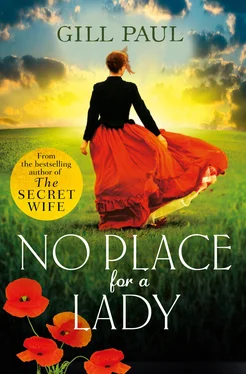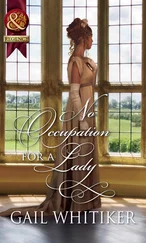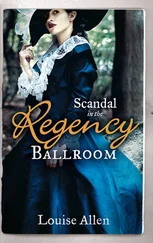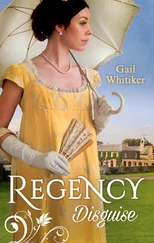‘No, don’t.’ Dorothea rose to her feet, suddenly finding his pomposity unbearable. Whatever he had written to Major Dodds had clearly exacerbated the problem. Had he been more tactful in his letter, she was sure the reply would not have been so abrupt and unhelpful. ‘You must forgive me, but I find myself quite overcome. I must be alone. Perhaps …’ Tears were not far away and she was unable to finish the sentence. She turned and fled from the room.
‘Of course,’ Mr Woodland said. ‘I’ll see myself out.’ Though by then there was no one to hear.
During the winter months of 1853–1854, Dorothea had a particular favourite patient at the Pimlico hospital. Edward Peters had been a soldier at the Battle of Waterloo almost forty years before but had since fallen on hard times. He had no children and no family members came to visit but Dorothea enjoyed the company of this softly spoken old man whose health was slowly but surely failing. Every day she brought him her father’s copy of The Times from the previous day because he liked to keep up with the news. He had trouble reading because his spectacles were not strong enough (she guessed he couldn’t afford another pair), so she would sit and read aloud the articles that interested him most, namely those about the impending war in the Turkish territories – which were, naturally, of great concern to her as well. Mr Peters interjected his own comments as she read, fiercely critical of government procrastination: ‘All this time we could be preparing for action and instead the politicians sit chin-wagging. They’re yellow, I say.’
‘We’ve given them an ultimatum and with any luck the Russians will comply,’ Dorothea argued.
But they didn’t, and on 28th March news broke that Britain and France had jointly declared war on Russia in support of the Turks.
Mr Peters was excited: ‘About time,’ he exclaimed. ‘Now we’ll stop those Russians invading their neighbours.’ Dorothea could tell he wished he himself were going to fight, a young man once more.
‘My sister’s husband is a Captain in the 8th Hussars and bound to be sent to fight. She is hoping to accompany him.’ She asked the question that was foremost in her mind: ‘Do you think she will be safe?’
‘Who can say? Wives have accompanied troops to battle for centuries past, and they had their uses in cooking and doing laundry for the men. But times are changing and it’s damn foolishness that they still take them now the new longer-range guns are in use. Commanders’ attention is diverted from the battlefield to providing suitable accommodation for ladies, and extra food is needed. I always thought it was madness.’ He coughed with the effort of this speech. ‘The 8th Hussars, you say? Part of the Light Brigade. Safer than the Heavy Brigade, at least. The Heavies lead the attacks but the Light are mostly used for reconnaissance. Who are your brother-in-law’s family?’
‘The Harvingtons of Northampton.’
‘Are they a military family?’
‘I’m afraid I do not know. I haven’t made their acquaintance.’ Dorothea coloured. ‘I regret to say the marriage was somewhat hasty, arranged so that my sister might go with the army and remain at her husband’s side.’
‘You must be very concerned,’ Mr Peters said in a hoarse whisper.
‘I am.’ Dorothea blinked back a tear. ‘I’m terrified for Lucy but I cannot write to her as I don’t know where they are lodging.’
‘If you write on the envelope “Care of Captain Harvington, 8th Hussars” and send it to the regimental headquarters, they’ll pass it on …’ he rasped, then a tickle caught in his throat and he began to cough with a nasty hacking sound. He closed his eyes as his ribcage heaved with the effort. His lungs often became congested, causing him to choke and struggle for breath but he never complained. Dorothea thumped his back to dislodge the phlegm and held a bowl for him to spit into, noting that his sputum was an unhealthy greenish-yellow in colour. Earlier she’d noticed that his feet were turning black from lack of circulation. She hoped the principal physician would look in on him later.
When the hacking cough had at last subsided, Dorothea saw that Mr Peters’ lips had a bluish tinge and his skin was pale. He seemed to summon every effort to say one more thing to Dorothea. ‘If you’ll excuse me saying, Sister, it’s best to make peace while you still can,’ he whispered, then closed his eyes to rest. Every coughing fit drained his remaining strength.
‘Would you like me to fetch a vicar, or a priest?’ Dorothea asked, wondering if that’s what he was hinting, but he shook his head vehemently. In earlier conversations he had expressed a low opinion of religion but she often found patients changed their minds as death approached.
The physician who came to examine Mr Peters later told Dorothea that he thought the end was near. ‘Can you contact his family?’ he asked.
‘There are no close relatives, I’m afraid. I asked him who I should contact if his condition worsened but he said there was no one.’
Perhaps that will be my situation one day, Dorothea mused – especially if this terrible rift with Lucy is not healed. At thirty-one, she was too old to marry and have children. The thought filled her with sadness, but she comforted herself that at least she had her work. She loved being useful to her patients and knew she was good at easing their suffering and making them feel they were not alone. Hospitals were terrifying places, where you were surrounded by strangers, with doctors whisking in to perform painful procedures before disappearing again. Dorothea tried to make patients feel she was a friend, someone on their side, and their heartfelt thanks were gratifying.
She decided to spend the day sitting with Mr Peters, whose breathing was now tortured and shallow. He clearly didn’t have long to go and she couldn’t let him pass away on his own. She made herself a cup of tea and pulled up a chair by his bed, then wiped his brow and offered him a sip of water but he shook his head. Each breath was an effort and before long he drifted into sleep. There was a rattling in his throat, the noise some called the death rattle, caused, she knew, by saliva gathering once he could no longer swallow. She kept wetting his lips so they didn’t crack and holding a cool cloth on his brow. Although he was unconscious she hoped he could sense her presence.
At four-thirty he opened his eyes one last time, choking from the fluid in his lungs. His hands were freezing cold and she could smell the sharp chemical scent she often noted right at the end. Dorothea slipped the pillow from beneath his head because death would come quicker if he was lying flat. ‘Goodbye,’ she whispered. ‘You are a good man and I’ll miss our conversations.’ She squeezed his shoulder as he took one last virtually undetectable breath, just as she had done five years earlier on the night her mother died.
That had been a cruel death. Her mother had been in hideous pain as the cancer gnawed through her insides. She could keep nothing down, not even the laudanum that could have offered some relief, and her opium enema seemed to do little good. Towards the end the disease had been in her spine, making it impossible to find a comfortable position whether sitting or lying. She was terrified, yet strove to muffle her cries of agony in the blankets so as not to waken thirteen-year-old Lucy, who was asleep in her bedroom down the corridor. Dorothea could see the fear etched in her mother’s eyes, could hear her whispered pleas for help, and was powerless to do more than hold her hand, moisten her lips and soothe her with whispered endearments. The doctor came and went, leaving further useless supplies of laudanum; their vicar came to pray. Her father couldn’t bear it and retreated to his study, leaving Dorothea to witness the final throes of the awful death struggle on her own. It was an experience that scarred her, something that would never leave her. Her mother’s last breath when it came was a blessed release from acute torture and the expression caught at the moment of death was one of horror. Thankfully Lucy had not witnessed any of it. By the time she came to see the body the following morning, their mother’s features had settled into a peaceful repose. Lucy complained of not being called to say goodbye but Dorothea knew she was too young for such a distressing sight.
Читать дальше












